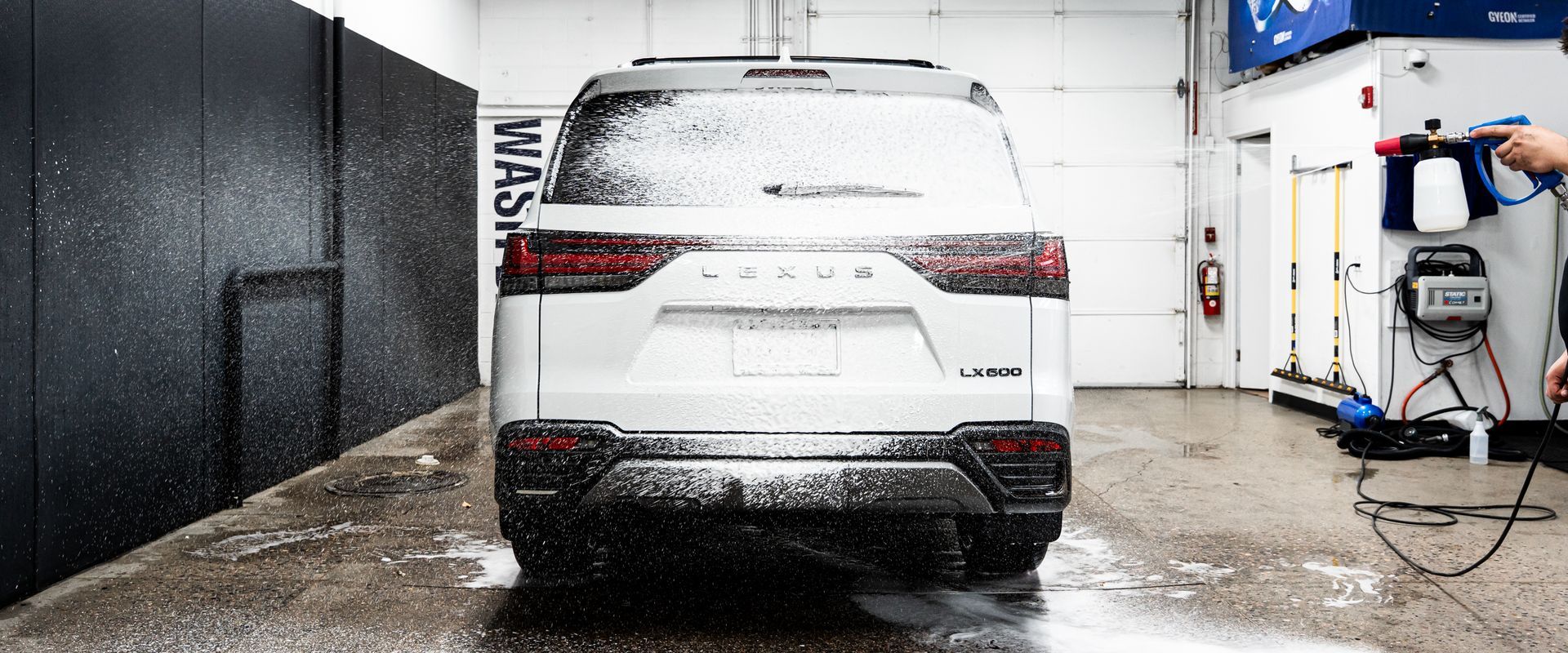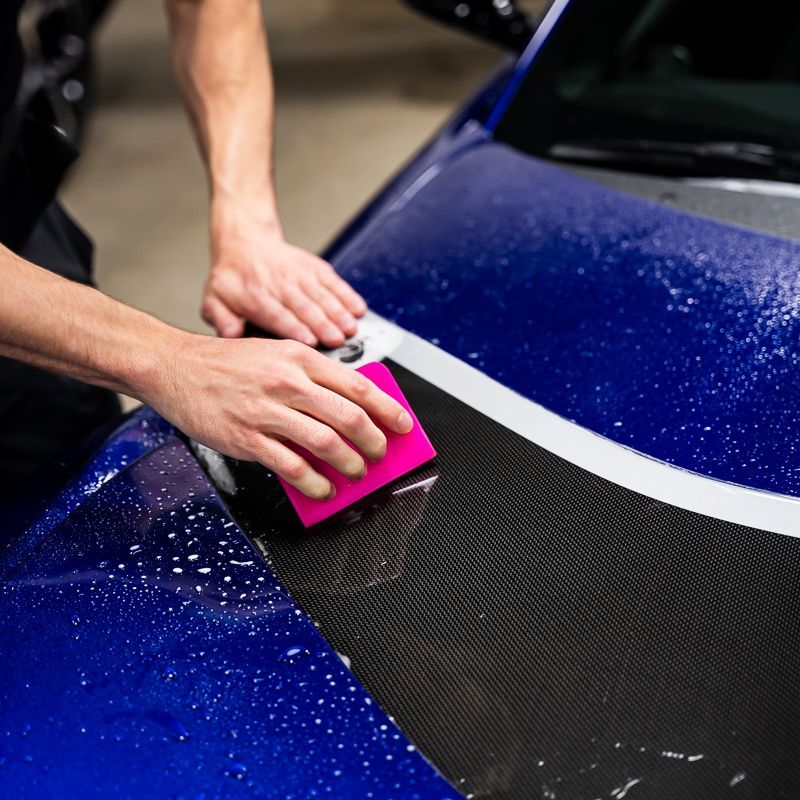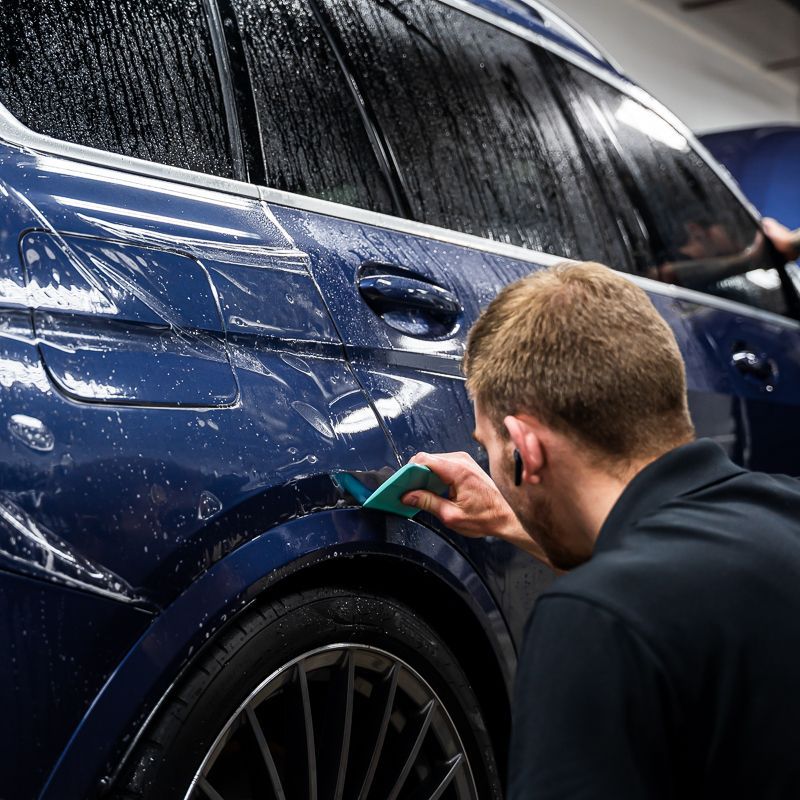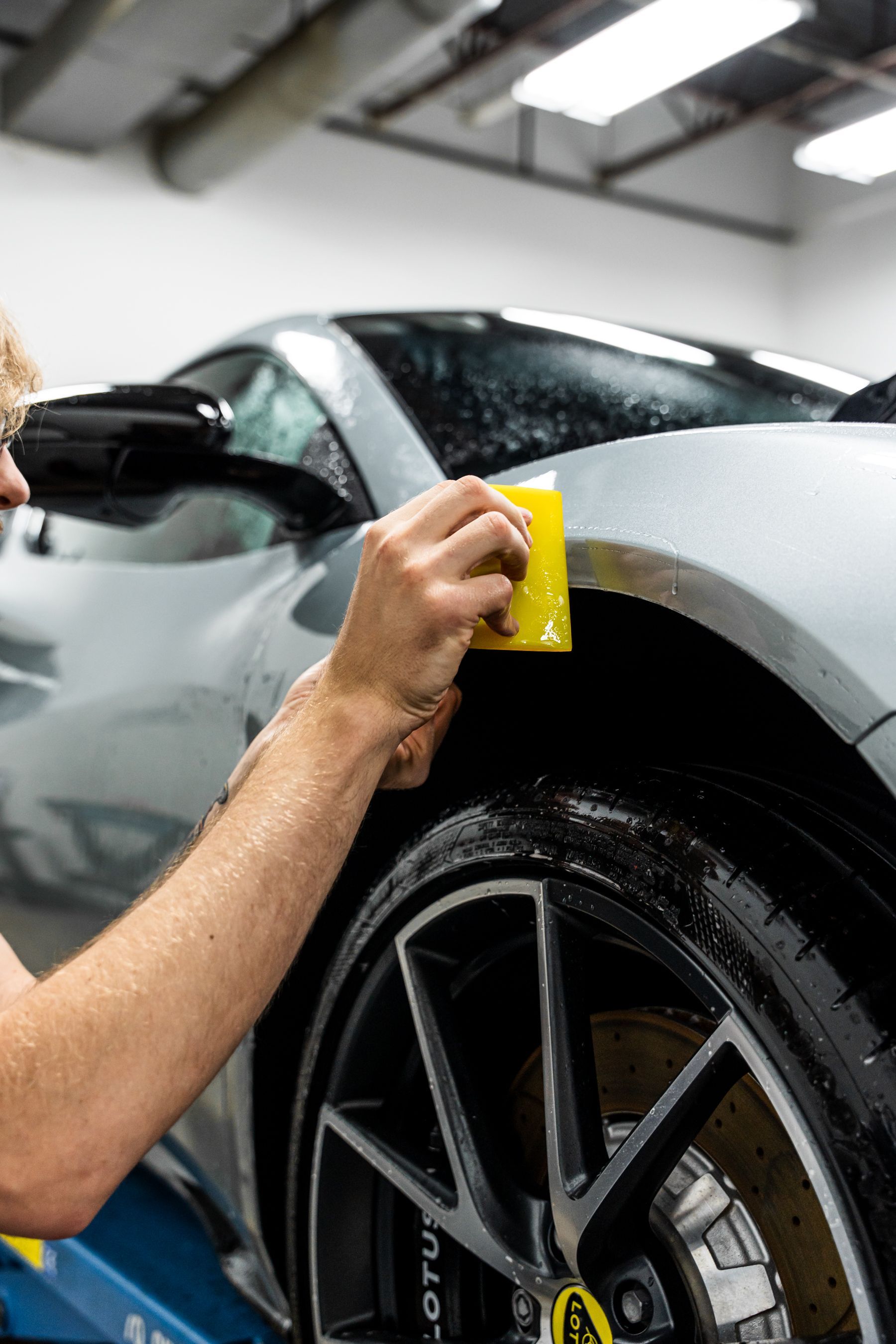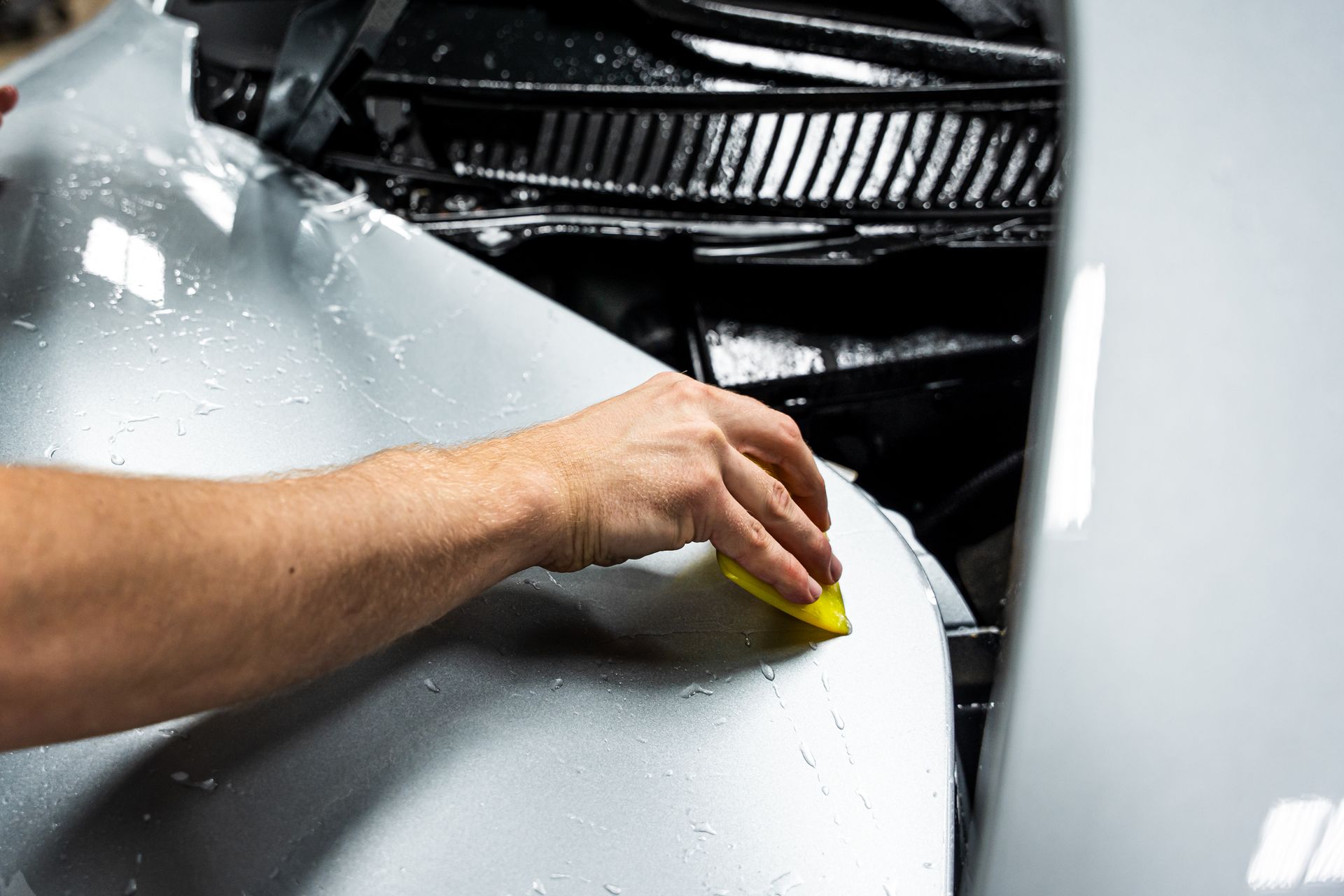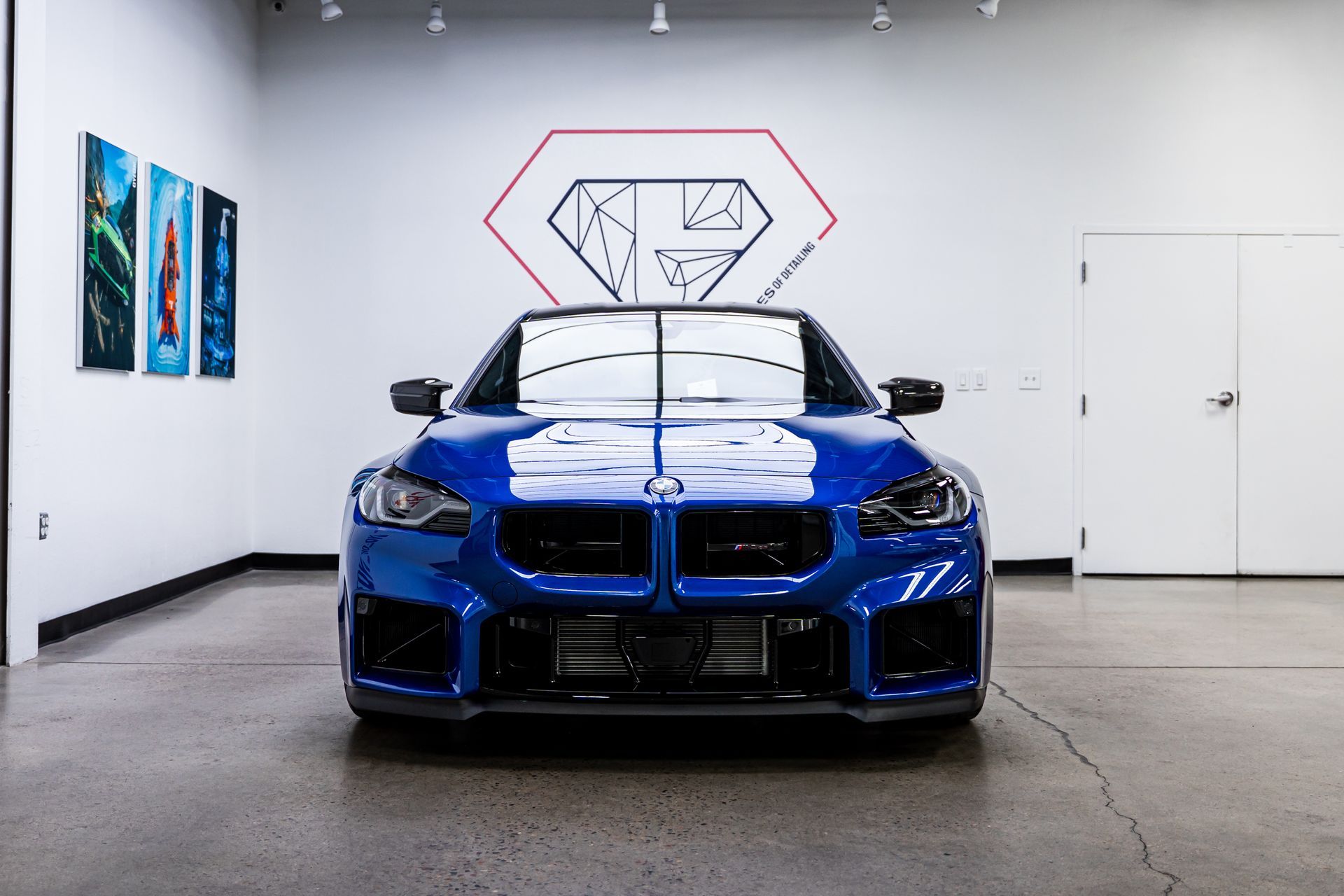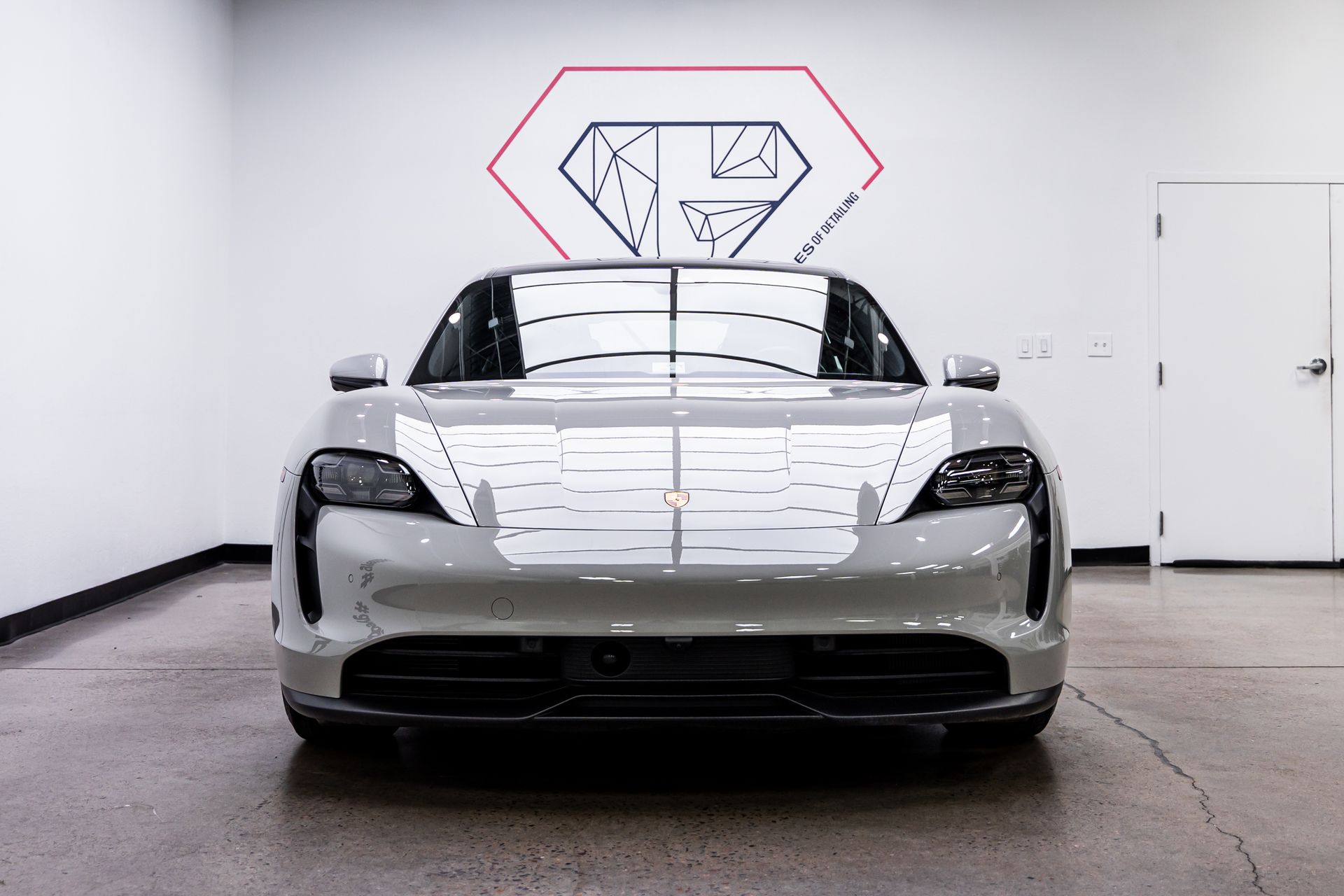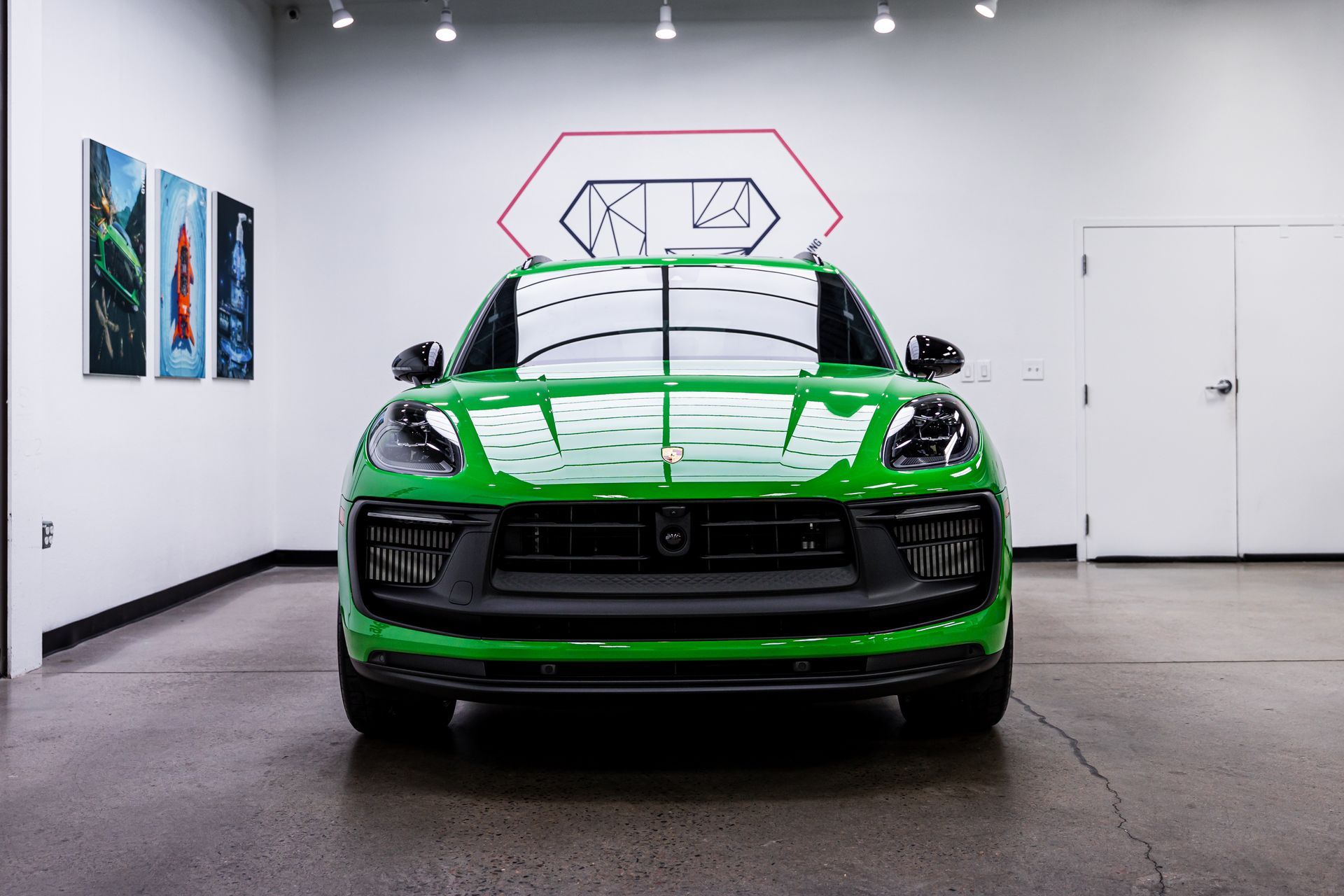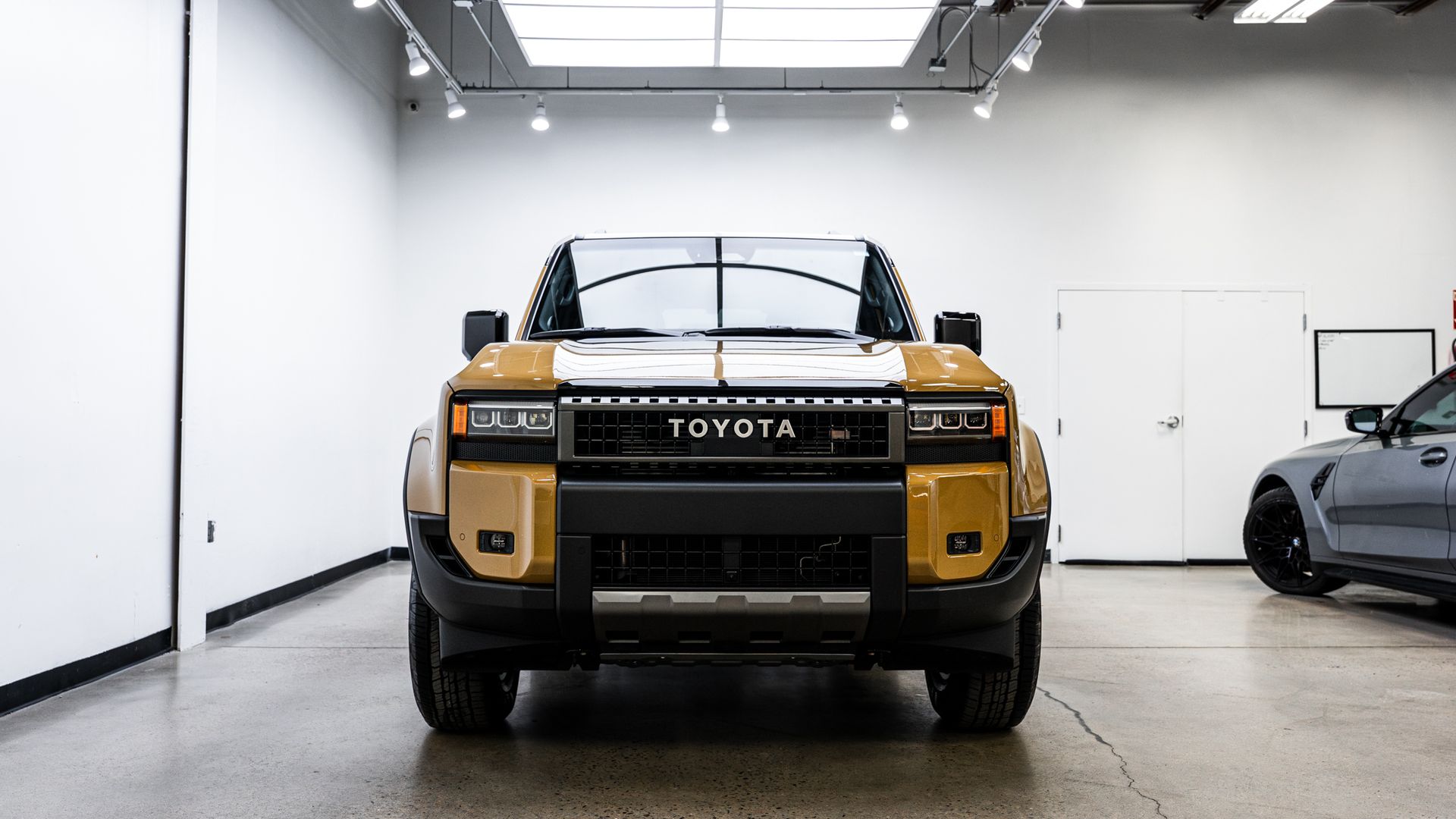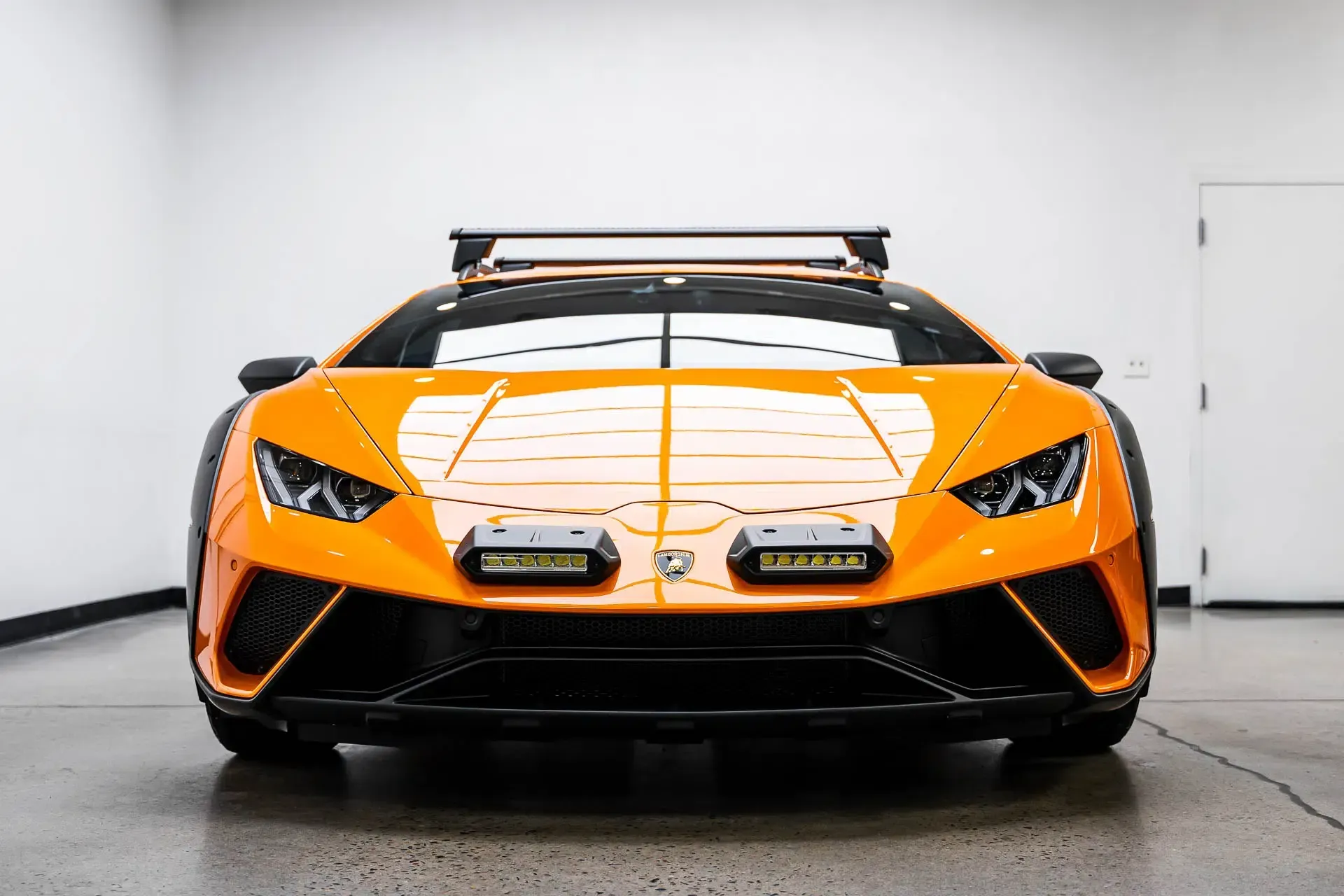Paint Protection Film: Shielding Your Vehicle from Colorado's Harshest Elements
CALL (720) 662-8520
GET A FREE ESTIMATEYour vehicle faces relentless challenges every day on Colorado roads. From gravel kicked up by passing trucks to the intense UV radiation at our altitude, your car's finish endures constant assault. For owners of premium vehicles like BMW, Mercedes, Porsche, Tesla, and Rivian, protecting that factory finish isn't just about aesthetics—it's about preserving a significant investment and maintaining long-term value. Paint protection film, commonly known as PPF, offers a sophisticated solution to these everyday threats. This clear, virtually invisible urethane barrier acts as a shield between your vehicle's paint and the harsh environment, absorbing impacts and blocking damaging elements without altering your car's appearance. As more discerning vehicle owners discover its benefits, PPF has become an essential component of comprehensive automotive care.
Understanding Paint Protection Film
Paint protection film is a transparent, flexible layer of thermoplastic urethane engineered specifically to guard automotive paint from damage. Think of it as invisible armor that conforms perfectly to your vehicle's curves and contours. The film's primary function is absorbing impact from road debris—small stones, gravel, and particles that constantly threaten your paint's integrity during highway driving and daily commutes. The technology behind modern PPF originated from military applications, where similar materials protected sensitive equipment from debris damage. This heritage means the film possesses remarkable elasticity, allowing it to stretch and absorb impact without breaking or peeling. Today's automotive-grade films bring that same durability to your vehicle while remaining completely transparent.
Beyond physical protection, PPF incorporates several advanced features that make it uniquely effective. The film includes a specialized self-healing topcoat that allows minor scratches and swirl marks to disappear when exposed to heat, whether from sunlight or warm water during washing. This means small abrasions vanish naturally without requiring buffing or polishing, keeping your vehicle looking flawless. The hydrophobic properties of quality PPF cause water and contaminants to bead up and roll off the surface easily. This natural shedding action carries away dirt, dust, and pollutants that would otherwise cling to your paint, reducing staining and simplifying maintenance. In Colorado's variable climate, where dust from construction zones mixes with winter road treatments, this self-cleaning characteristic proves invaluable.
PPF also blocks harmful UV radiation—a critical consideration at Denver's elevation, where UV intensity exceeds sea-level locations by approximately twenty-five percent. The film prevents the paint underneath from fading or oxidizing, maintaining your vehicle's vibrant color and glossy finish for years. Additionally, it acts as a barrier against chemical contaminants like bird droppings, tree sap, and the road salts used throughout Colorado winters. These substances can cause corrosion or permanent etching if left in direct contact with unprotected paint. Quality PPF typically lasts between five and ten years with proper maintenance, making it a worthwhile investment compared to traditional waxes or sealants that require frequent reapplication. However, achieving optimal results requires professional installation using precision techniques and proper surface preparation.
Protection Against Road Debris
Every Colorado driver knows the distinctive sound of gravel striking their vehicle on mountain highways or construction-heavy corridors. These impacts might seem insignificant individually, but accumulated damage chips away at your paint's protective clear coat, eventually exposing underlying layers to moisture and oxidation. PPF functions as a shock-absorbing cushion that disperses impact energy before it can damage your vehicle's finish. The film's engineered tensile strength handles particles traveling at highway speeds without transferring damage to the paint beneath. When a stone strikes PPF-protected paint, the flexible urethane stretches slightly under pressure, dissipating the kinetic energy across the film's surface rather than concentrating it at a single point. This mechanical advantage converts potentially costly repairs into non-events, preserving your vehicle's showroom appearance.
Research indicates that vehicles equipped with quality PPF experience significantly fewer paint chips and scratch marks compared to unprotected vehicles under similar driving conditions. This protection directly contributes to maintaining resale value, as paint condition heavily influences buyer perception and negotiating position when you're ready to upgrade. For maximum protection, focus PPF application on high-impact areas like the front bumper, hood, fenders, side mirrors, door edges, and rocker panels. These zones take the brunt of road debris exposure during normal driving. Professional installers use precision-cut templates designed specifically for your vehicle model, ensuring complete coverage without gaps where debris could cause damage.
Weather Resistance in Colorado's Climate
Colorado's dramatic weather patterns demand robust paint protection. PPF's hydrophobic surface technology causes water to bead up and roll away rather than settling on your vehicle's paint. This isn't merely a cosmetic benefit—the active shedding of moisture prevents water spots, mineral deposits, and the accumulation of contaminants that can etch into unprotected finishes. During spring and summer, afternoon thunderstorms drop intense rainfall that often carries airborne pollutants and dust. The film's slick barrier prevents these substances from bonding with your paint, making post-storm cleaning significantly easier. In winter, the same water-repelling features stop ice from forming on treated surfaces and shield against harmful road chemicals that can damage the paint faster.
Temperature resilience represents another crucial advantage in our climate. Quality PPF withstands extreme temperature swings from subzero winter nights to scorching summer afternoons without cracking, yellowing, or losing adhesion. This durability matters tremendously when your vehicle endures months of harsh winter conditions followed by intense summer heat. The film maintains its protective integrity regardless of seasonal extremes, providing year-round defense against environmental damage. The chemical resistance inherent in modern PPF formulations protects against acid rain, bird droppings, tree sap, and road salt—all common paint enemies in Colorado's environment. These contaminants can cause permanent staining or corrosion if allowed to sit on bare paint, but PPF creates an impermeable barrier that prevents chemical penetration. Regular washing removes these threats before they can cause harm, and the film's smooth surface makes cleaning more efficient than washing unprotected paint.
UV Protection at Elevation
Colorado's high elevation intensifies UV radiation exposure, accelerating paint oxidation and fading. Prolonged sun exposure attacks automotive paint through a chemical process that breaks down clear coat layers and dulls pigmentation. Without adequate protection, this degradation begins within the first few years of ownership, robbing your vehicle of its vibrant appearance. Premium PPF incorporates UV inhibitors that block the majority of harmful radiation before it reaches your paint. This protection dramatically slows oxidation-related damage, preserving color intensity and gloss far longer than unprotected finishes. The difference becomes particularly noticeable on darker paint colors and metallic finishes, which show fading and dulling more readily than lighter shades.
The film's UV blocking capability extends beyond exterior paint protection. By reducing UV transmission through painted surfaces, PPF indirectly helps preserve interior materials like dashboard plastics and trim components that also suffer from sun exposure. This comprehensive protection maintains your vehicle's overall condition, contributing to long-term value retention. Choosing PPF with robust UV inhibitors proves especially important for vehicles regularly parked outdoors or exposed to direct sunlight for extended periods. Even garaged vehicles benefit from this protection during daily use, as cumulative UV exposure occurs whenever you're driving or parked outside.
Professional Installation Considerations
PPF installation demands precision, patience, and specialized equipment to achieve optimal results. The process begins with meticulous surface preparation—your vehicle must be completely clean and free from any contaminants that could compromise adhesion. Professional installers thoroughly wash and decontaminate the paint, then use specialized solutions to ensure perfect bonding conditions. Proper installation takes place in a controlled environment where temperature and humidity remain within optimal ranges. Ambient conditions affect the film's flexibility and adhesive properties, so climate control ensures consistent results. Installers use computer-generated cutting templates designed specifically for your vehicle model, minimizing material waste and ensuring precise coverage without gaps.
During application, installers use a slip solution that allows repositioning the film before it bonds permanently. This wet application method enables perfect alignment along body lines and around complex curves. Working systematically from the panel center toward the edges, installers use specialized squeegees to remove trapped air and moisture, ensuring smooth, bubble-free results. Edge sealing represents a critical final step. Installers carefully apply controlled heat to activate the adhesive along all edges, creating watertight seals that prevent lifting or peeling. Proper edge sealing ensures the film remains securely bonded even when exposed to high-pressure washing or extreme weather. Attempting DIY installation without proper tools, experience, and environment often results in disappointing outcomes—bubbles, wrinkles, contamination, or improper adhesion that compromises both appearance and protection. Professional installation provides warranty coverage and ensures your investment delivers maximum long-term value.
Maintenance and Longevity
Maintaining PPF requires minimal effort but consistent attention to proper care practices. Wash your vehicle regularly using pH-balanced automotive shampoos designed for coated surfaces. Avoid harsh chemicals, abrasive brushes, or automated car washes with stiff bristles that can scratch the film's surface or degrade its protective topcoat. Hand washing with microfiber wash mitts and soft towels provides the gentlest cleaning method. When drying, use plush microfiber towels and blotting motions rather than dragging the towel across the surface. This technique prevents introducing swirl marks while taking advantage of the film's hydrophobic properties that allow water to sheet off easily.
Conduct periodic visual inspections focusing on edges and high-impact areas like the front bumper and hood. Early detection of minor lifting or contamination allows for simple fixes before problems escalate. Most professional installers offer maintenance services and warranty support, providing peace of mind throughout your film's lifespan. Park in covered or shaded areas when possible to minimize prolonged UV exposure and temperature cycling. While PPF provides excellent UV protection, reducing direct sun exposure extends the film's aesthetic lifespan and maintains its optical clarity.
Investment Value for Premium Vehicle Owners
For owners of high-end vehicles, PPF represents practical insurance against the inevitable wear that diminishes paint condition and resale value. The upfront cost varies based on coverage area, with partial front-end protection starting around one thousand dollars and full-vehicle coverage reaching several thousand. While this investment might seem substantial initially, it pales compared to the cumulative cost of paint repairs, corrections, and potential repainting. Consider the typical expenses associated with maintaining unprotected paint in Colorado's environment. Minor chips and scratches accumulate quickly on front-facing surfaces, requiring professional touch-ups or repainting. Road salt corrosion can necessitate panel replacement if damage penetrates to bare metal. UV-induced fading often demands complete repainting to restore uniform color and gloss. These repairs easily exceed PPF installation costs over your ownership period.
Beyond direct financial savings, PPF maintains your vehicle's aesthetic appeal and market value. Perfect paint condition has a big impact on buyer perception and negotiating power when it's time to sell or trade. Vehicles showing extensive paint wear typically sell for considerably less than comparable examples with well-maintained finishes. PPF suits particularly well for owners who drive frequently on highways, commute through construction zones, or regularly travel mountain roads where debris exposure intensifies. If you prioritize maintaining your vehicle's appearance and protecting your investment, comprehensive PPF coverage delivers tangible returns through reduced maintenance costs and preserved value.
Paint protection film offers sophisticated defense against Colorado's uniquely challenging environment. From absorbing rock chip impacts to blocking intense UV radiation and repelling winter road treatments, PPF provides comprehensive protection that traditional waxes and sealants cannot match. For owners of premium vehicles who value maintaining showroom condition and long-term value, professional PPF installation represents a strategic investment in automotive care. The key to maximizing PPF benefits lies in selecting quality materials, ensuring professional installation, and maintaining proper care practices throughout the film's lifespan. When these elements align, PPF delivers years of reliable protection while keeping your vehicle looking its absolute best.
Professional PPF Installation in Englewood, CO
Road debris and harsh conditions are no match for Denver Auto Shield’s paint protection film in Englewood, CO.
Our premium films provide a crystal-clear, self-healing layer that preserves your vehicle’s color and finish for years to come. Applied with precision and care, each PPF installation ensures invisible protection that lasts through every season. Keep your car protected from the elements—schedule your service with Denver Auto Shield now!
